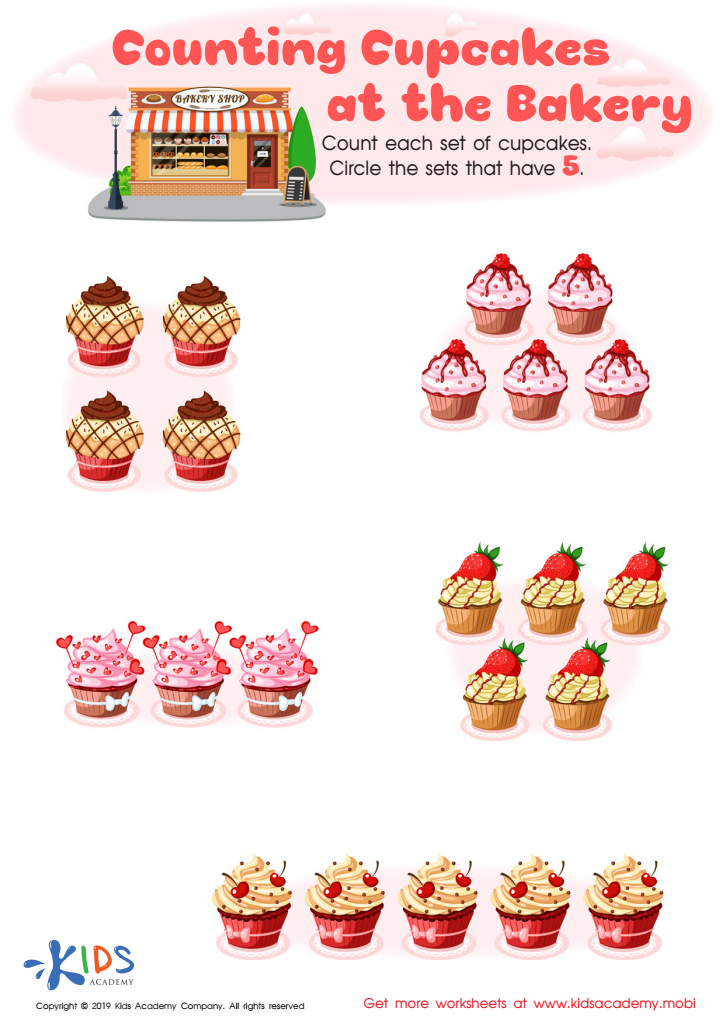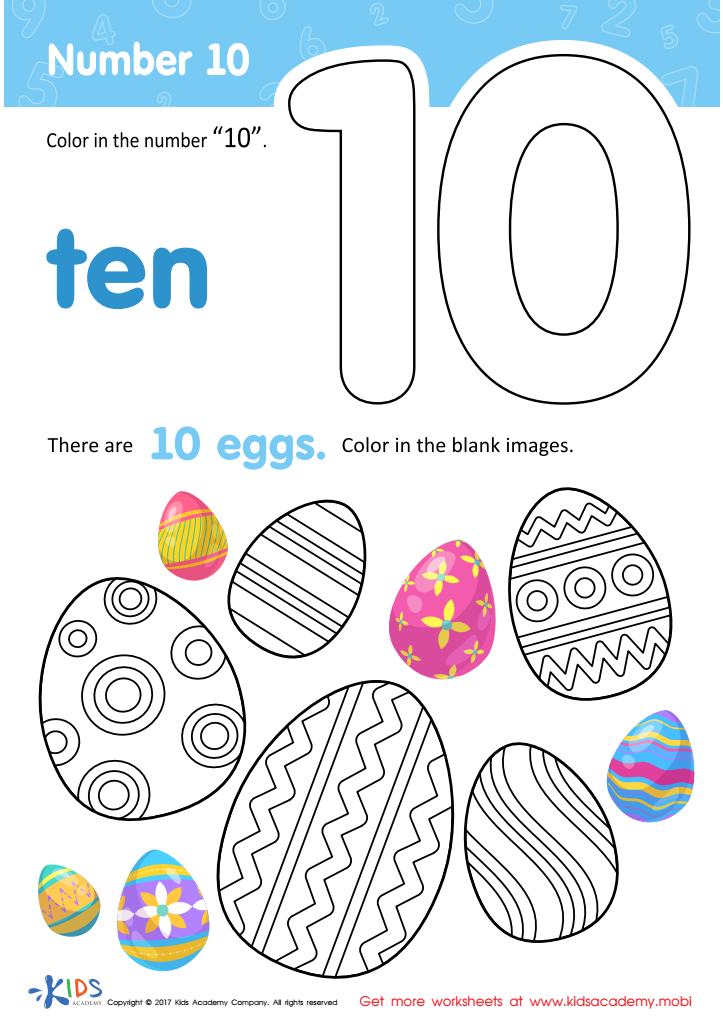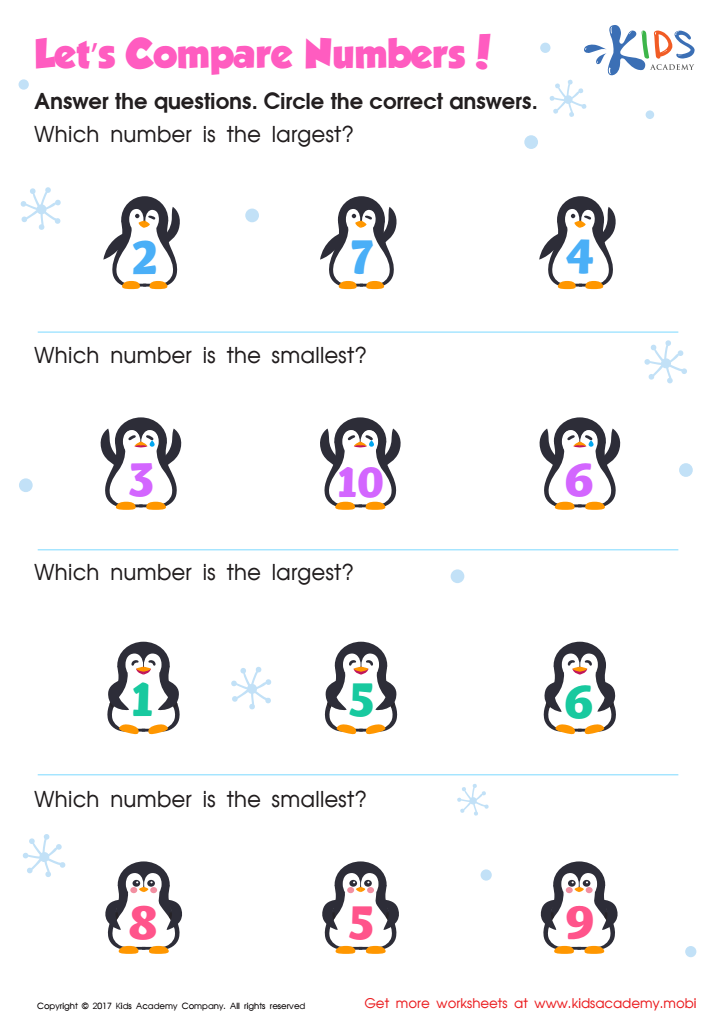Basic Math understanding Numbers Worksheets for Ages 4-5
3 filtered results
-
From - To
Welcome to our "Basic Math Understanding Numbers Worksheets" for children ages 4-5! This engaging collection of printable worksheets is designed to help young learners develop essential math skills in a fun and interactive way. Our activities focus on number recognition, counting, and basic addition concepts, making math enjoyable and accessible. With vibrant illustrations and age-appropriate exercises, these worksheets promote early math understanding and foster a love for learning. Perfect for homeschooling or classroom settings, our resources support children's cognitive development while sharpening their problem-solving abilities. Start your young mathematicians on their educational journey today with our exciting worksheets!


Counting Cupcakes Worksheet


Number 10 Printable


Comparing Numbers 1–10 Worksheet Kindergarten
Understanding basic math concepts is fundamental for young children aged 4-5, and it's crucial for both parents and teachers to prioritize this early learning stage. At this age, children are naturally curious and eager to explore the world around them. Introducing them to numbers lays the foundation for critical thinking and problem-solving skills.
Learning basic math fosters cognitive development by enhancing children's ability to recognize patterns, categorize objects, and make connections between quantities and their numeral representations. This comprehension also strengthens their language skills as they learn to express ideas related to numbers, such as “more,” “less,” and “equal.”
Furthermore, a solid grasp of basic math helps to develop confidence and a positive attitude toward learning. Children who feel secure in their understanding of numbers are more likely to engage in mathematical activities and take initiative in their learning.
By fostering these skills at an early age, parents and teachers are not only preparing children for future academic success, but they are also equipping them with essential life skills that extend far beyond the classroom. Ultimately, investing time in early math education supports the holistic development of children, nurturing their natural curiosity and excitement for learning.
 Assign to My Students
Assign to My Students


















